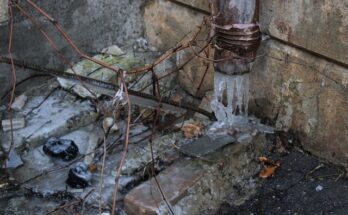They are coming. You have read the reports in the newspaper, watched the TV news. Your family and friends have legendary stories of how you battled them 17 years ago.
The cicadas.
They make living in your yard almost unbearable. They’re loud. They fly everywhere. They land in unexpected places. They get in your hair.
Their shells and eventually their bodies litter the ground, cover your tree trunks, and create a mess. Worse yet, if unchecked, they can create water backups and do damage to your house and roof.
Here’s how to protect your house so they remain a nuisance and not a costly repair issue.
Routinely clean up the cicada mess
The first step in maintaining your house during the cicada invasion is keeping a tidy property.
Make a habit of sweeping up the bodies from your driveway, sidewalks, and around your house.
The best way to keep from having drainage problems is to avoid them altogether by putting the bodies in your compost rather than letting them get to your drainage system.
If you don’t already have them, it’s time to get a sidewalk broom and a wide metal dustpan.
Maintain cicada-free gutters and downspouts
The most significant place that many people encounter problems caused by cicadas and cicada carcasses is in their home drainage system.
The problem is there are just so many of them. So like leaves in the fall, or snow in the winter, a responsible homeowner has to have a plan for routinely dealing with the build-up during the time the cicadas are present.
The second tip, then, is to check your gutters regularly. While cicadas generally stay close to the ground, in flight they frequently reach the level of the roof of a two-story home. Even a small number of bodies in your drains could cause a significant back up, even months down the road.
Our third piece of advice comes later this summer. When the worst of the cicadas has passed, do an inspection of your downspouts. You can do this by flushing water down them yourself, or going out in a rainstorm and making sure they are handling the water well. The goal is to check for – and correct – problems early. A minor problem in late summer can become a big issue in the fall, or a crisis in the winter.
Don’t let the cicadas hurt your biggest investment – your home.



